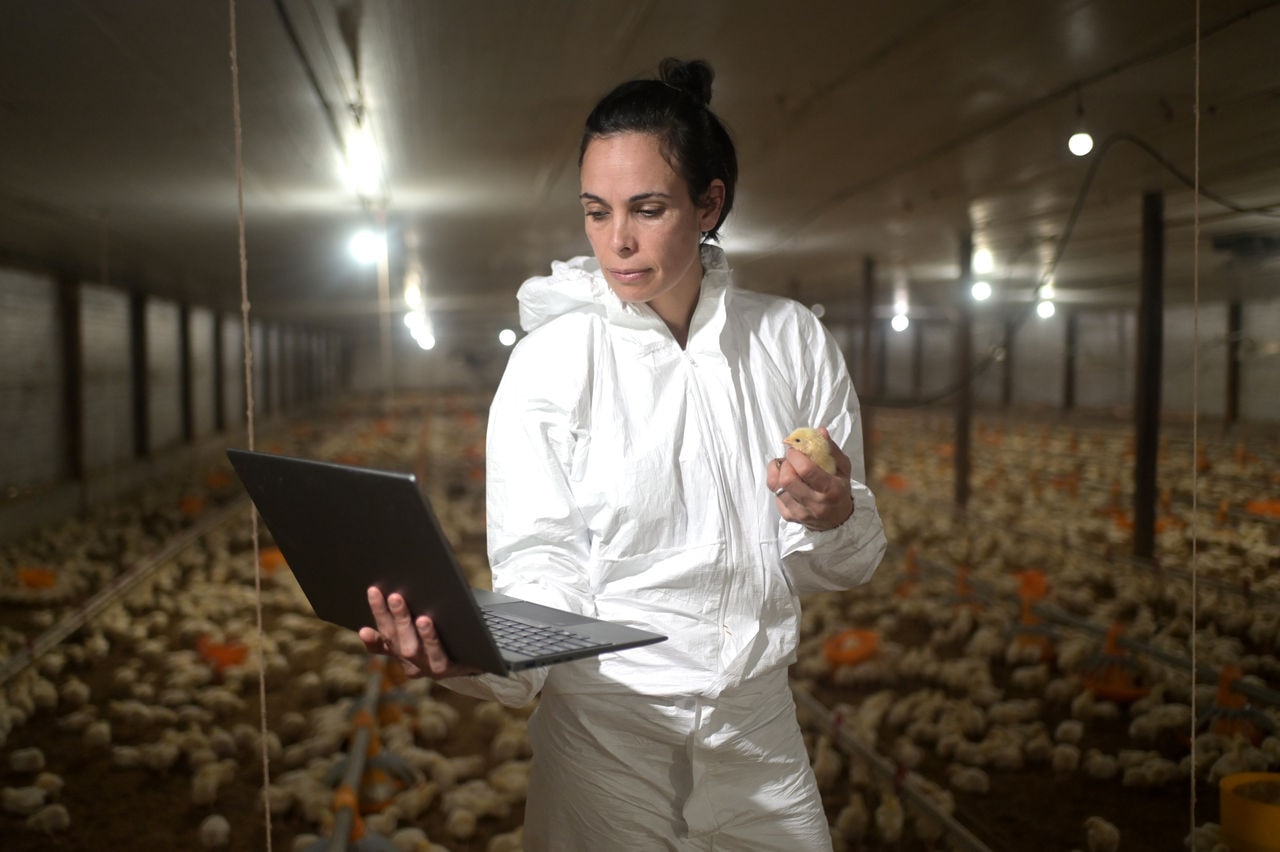
Modern intensive poultry production relies heavily on soy as a key raw material. Chickens producing meat, as well as hens producing eggs, need about 30% of soy in their ration. Soy has a consistent nutrient value – good protein source, but not all is digestible.
Out of the 350 million tons of soy grown globally, approximatively 230 million tons are used as soy meal in feed. From these 230 million tons, and 125 million tons are for poultry only (30% of Broiler feed & 25% of Layer feed).
We know that modern intensive soy cultivation raises issues with soil health, biodiversity and generally environmental footprint.
In half a century, the amount of soy, produced has increased tenfold, driven by animal protein production. Global soy acreage followed the same trend, from 30 million ha in 1970 to 100 million ha in 2012; and is forecasted to reach > 140 million ha by 2050, which is streching quite a lot planetary boundaries. Improving soy utilization would thus have a global positive impact on land use and environmental footprint.
ANH Protease, dsm-firmenich ProAct, can play a major role in improving soy utilization for poultry production. dsm-firmenich ProAct contributes to significantly improving amino acids digestibility in poultry diets, subsequently reducing the total amount of soy which could be brought into the diet. On average, we estimate around 25 kg per ton of feed the amount of soy which can be saved by using dsm-firmenich ProAct. Unfortunately, the current penetration of protease technology globally represents less than 20% for poultry. Imagine that for broilers only, if the 19 Billion of Broiler heads produced globally in 2019 would have been fed with dsm-firmenich ProAct, dsm-firmenich customers would have saved around 9 million tons of soy. This represents more than 3 million ha of soy which would not have been needed, and this accounts for twice the annual Amazon deforestation rate (since 1970).
But this is not the only contribution of dsm-firmenich ProAct regarding an efficient use of natural ressources. In fact, dsm-firmenich ProAct allows a better use of alternative raw materials, being local raw material or by-products. Fort he reasons mentioned above, replacing soy in poultry diets by local raw materials (e.g. cereals, Palm Kernel Meals) and by products (Distiller’s Dried Grains with Solubles, Meat & Bone Meal, feather meal, fish meal…) is desirable. This is true not only for cost reasons, but also for sustainability reasons such as (but not limited to): less transport, lower environmental footprint, valorization of by-products & circular economy.
Nevertheless, such replacement may create digestibility issues and reduced feed efficiency. dsm-firmenich ProAct drastically improves amino acids digestibility for a wide range of alternative raw materials making such replacement easier.
In a nutshell, if you want to act now for a more efficient use of natural resources in Poultry production, rely on dsm-firmenich ProAct and its 10 years of proven track record to make the difference.
If not us, who?
If not now, when?
So, together let’s make it possible!
01 October 2020
Guillaume Trépo is Global Portfolio Lead for feed Enzymes. He holds a Master in Agronomy with a specialty in Biotechnologies, obtained at Ecole Nationale Supérieure d’Agronomie in Toulouse (France), completed by an MBA from HEC-Paris.
Guillaume has worked more than 20 years in Agriculture, through various Sales & Marketing positions at local, regional & global level. Guillaume joined dsm-firmenich Global Specialty Team 2 years ago.
Not all products are available in all markets nor associated claims allowed in all regions (including but not limited to USA and Canada).